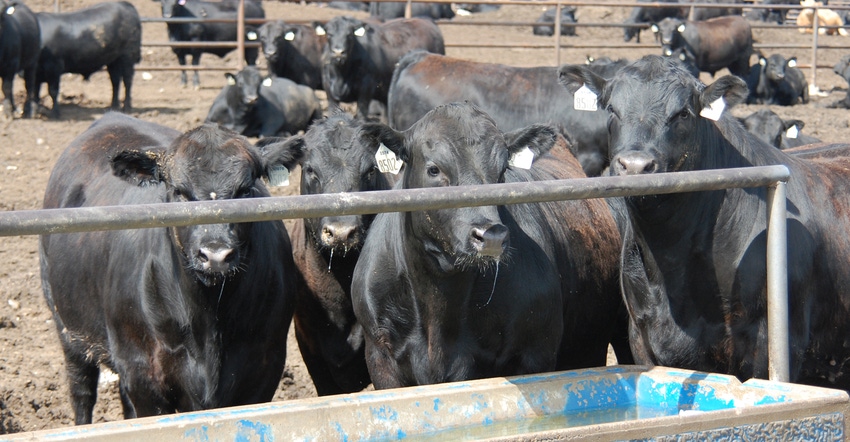
A comment period is now open on a new EPA rule signed Tuesday in Kansas City, Kan. The new rule makes it clear that reporting of air emissions from animal waste on farms is not required by the Emergency Planning and Community Right-to-Know Act.
Andrew Wheeler, acting administrator of the EPA, signed the rule following a tour of the Region 7 Lab in Kansas City and a meeting with EPA employees there, an event arranged by Sen. Jerry Moran, R-Kan., who accompanied the administrator on the tour.
Jackie McClaskey, Kansas secretary of agriculture, attended the signing ceremony, as well as emergency management officials, representatives of USDA, the Kansas Farm Bureau, the Kansas Livestock Association, Nebraska Cattlemen, the Livestock Marketing Association and the National Pork Producers Council.
"The proposed rule is intended to make it clear to the regulated community that animal waste emissions from farms do not need to be reported under EPCRA," Wheeler said. "This action provides much-needed certainty and clarity to America's farmers and ranchers. It also ensures our emergency response officials are focusing their time and resources on hazardous waste emergencies and not routine animal waste."
EPCRA regulations date back to 1980 when the regulation was first introduced to require businesses that handle hazardous materials to make first responders in their communities aware of what those materials are, where they are stored and in what volume.
"The idea was to protect first responders by making sure that they didn't walk into a site during an emergency without knowing what they were up against," said Aaron Popelka, counsel for KLA, who attended the signing ceremony. "The original law clearly and specifically exempted animal agriculture facilities from the regulation."
An amendment to the regulation was made in 1986 in response to a chemical disaster in Bhopal, India, where a deadly gas leak killed 3,800 people and injured thousands more. That amendment required any entity that stores or handles hazardous materials to immediately notify local officials of any spill or leak that releases contaminants into the air. Again, livestock facilities were specifically exempted from the regulation.
Then, in the early 2000s, a lawsuit was filed to force air emissions reporting for large confined animal feeding operations of 1,000 or more animals. In 2008, EPA investigated and found no need for regulation of CAFOs for air emissions under EPCRA. Comments during that rulemaking included letters from first responders saying they saw no need to have information on feedlot air emissions.
Legal action continued in spite of that and, in May of 2017, the D.C. Circuit Court vacated EPA's regulatory exemption for livestock producers, prompting another round of investigation and yet another EPA interpretation of EPCRA that reporting still does not need to occur.
The proposed amendment will gather comments to reaffirm that EPA's interpretation is correct and that air emissions from animal waste at farms do not need to be reported.
"Our proposed rule would provide enhanced clarity for small and large animal producers and reduce confusion for emergency response officials throughout EPA Region 7, which covers the agricultural Midwest including Kansas, Iowa, Nebraska, and Missouri," said Jim Gulliford, EPA Region 7 administrator.
About the Author(s)
You May Also Like




